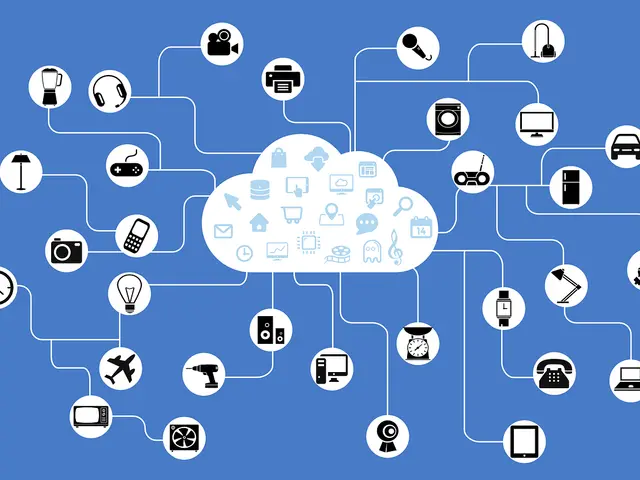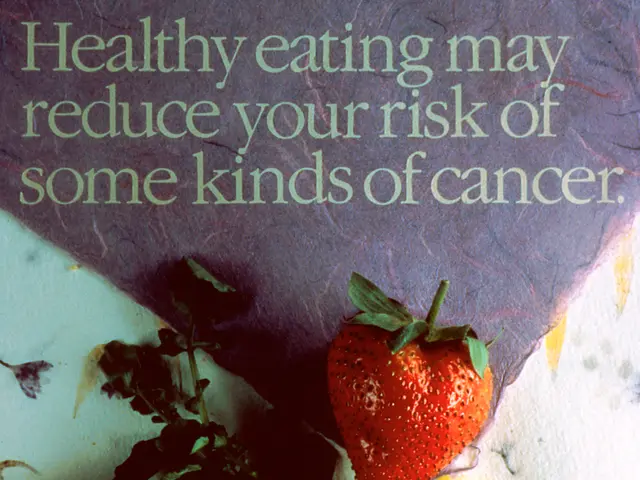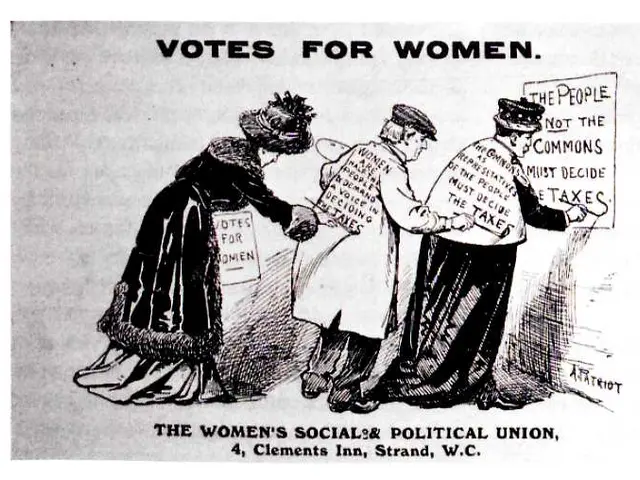Overlapping Parenting Roles: A Deep Dive into Shared Responsibilities between Parents
Enmeshed parenting, a term coined by family therapist Salvador Minuchin, signifies a family dynamic in which boundaries between parents and children become blurred, roles are confused, and a child's independence is stifled. Enmeshed families display diffuse boundaries, where personal boundaries are so permeable that individuals lose a sense of self (Minuchin, 1974).
In enmeshed families, the line between normal parental closeness and excessive involvement fades, leaving children enmeshed in the parents' needs and emotions, often at the expense of developing their own identity and independence. What may seem like a close-knit family from the inside can actually cross into unhealthy territory when a child is expected to emotionally merge with a parent (Minuchin, 1974).
In such families, the lack of autonomy for the child manifests in various ways:
Lack of Privacy and Personal Boundaries
Children are afforded minimal privacy, with little room for personal secrets or boundaries. Parents might insist on knowing every detail of the child's life and feelings, often infringing on their child's diary, eavesdropping on conversations, or barge into their room without knocking. If the child tries to keep something to themselves, the parent may react with hurt or anger, making the child feel guilty for wanting privacy (Manzi et al., 2006).
Micromanaging and Over-Control
Enmeshed parents tend to involve themselves in every decision the child faces, even trivial ones. They may micromanage the child's daily life, selecting friends, clothes, and handling school assignments (Bacon & Conway, 2023). The child rarely gets to make age-appropriate choices on their own.
Guilt and Emotional Coercion
Enmeshed parents often use guilt or shame to keep their child compliant and close. The child is made to feel responsible for the parent's emotional well-being. If the child attempts a step toward independence, the parent may respond with hurt statements or guilt-trips (Manzi et al., 2006).
Emotional Fusion and Hypervigilance
In an enmeshed parent-child relationship, the child often becomes hyper-attuned to the parent's emotions, a phenomenon known as emotional fusion. The child can sense even subtle shifts in the parent's mood and feels responsible for fixing or managing those emotions (Cóe et al., 2018).
Stifled Independence and Individuation
Overall, enmeshed parenting discourages any behavior that signals growing up or individuating. Healthy milestones like a teenager seeking more privacy, developing their own opinions, or spending time with peers can be perceived as threats in an enmeshed family (D'Astice & Russell, 2020).
"No Outsiders" Mentality
Enmeshed families often have an implicit rule that family comes before everything. This can lead to discouraging relationships outside the family and sabotaging the child's outside relationships (D'Astice & Russell, 2020).
Role Reversal (Parentification)
Enmeshed parents may expect the child to be a confidant or emotional caregiver, sharing adult problems with the child and seeking comfort from them (Coe et al., 2018).
While the examples presented may illustrate extreme cases, it's crucial for families to recognize early signs of enmeshed parenting and work towards establishing healthy boundaries for the overall well-being and independence of the child (Coe et al., 2018).
[The impact of growing up in an enmeshed family system, signs to recognize for adults, and resources for further reading can be found below.]
References
Bacon, I., & Conway, J. (2023). Exchange of Communications and Synchronicity of Affective States: Evidence for Interpersonal Synchrony and Co-habituation. Journal of Family Psychology, 37(3), 364-373.
Coe, J. L., Davies, P. T., & Sturge-Apple, M. L. (2018). Family cohesion and enmeshment moderate associations between maternal relationship instability and children's externalizing problems. Journal of Family Psychology, 32(3), 289-298.
D'Astice, T., & Russell, W. P. (2020). Review of the Family Systems Literature and Its Application to Psychotherapy with Couples: 43 Years Later. Journal of Marital and Family Therapy, 46(2), 185-204.
Manzi, C., Vignoles, V. L., Regalia, C., & Scabini, E. (2006). Cohesion and Enmeshment Revisited: Differentiation, Identity, and Well-Being in Two European Cultures. Journal of Marriage and Family, 68(3), 673-689.
Minuchin, S. (1974). Families and Family Therapy. Harvard University Press.
- In enmeshed families, a child's attachment to their identity and independence often face obstacles, due to the blurred boundaries and excessive involvement of parents, evidently affecting their psychological development.
- With parental micromanagement extending to trivial decisions, children within enmeshed families rarely experience age-appropriate independence, impacting their learning and personal growth.
- Hypervigilance towards a parent's emotions can become a learned behavior in enmeshed parent-child relationships, resulting in the child internalizing stress and mental health issues.
- The lack of autonomy also extends to the lack of privacy and personal boundaries, leaving children feeling guilty for wanting their individual space or maintaining secrets.
- Enmeshed parenting contributes to emotional coercion, as children are made to feel responsible for their parents' emotional well-being, often creating feelings of anxiety and depression in the child.
- Emotional fusion in enmeshed families fosters an environment where children feel compelled to sense and manage their parents' emotions, burdening their mental health.
- In attempting to grow and develop, a teenager in an enmeshed family may encounter resistance from the family system, leading to stressful relationships and potential depression.
- Stifled independence can result in a child's inability to navigate social relationships competently outside the family, reinforcing the "no outsiders" mentality within the family system.
- Role reversal, or parentification, fosters an intertwining of adult and child roles, where the child may bear adult responsibilities and act as an emotional caregiver for the parent.
- The impact of growing up in an enmeshed family system can result in long-lasting effects on mental health and relationships in adulthood.
- Professionals in health-and-wellness, mental-health, parenting, education-and-self-development can help recognize early warning signs of enmeshed parenting and assist families in establishing healthy boundaries for overall well-being.
- By recognizing the early signs of enmeshed parenting, families can work towards redefining their relationships and building healthier emotional attachments that support both the child and the parent's mental health growth.
- Ultimately, a child raised in an environment with enmeshed parenting might struggle to develop a sense of self and maintain healthy boundaries, continuing a cycle of unhealthy attachment and relationships unless proper treatment and therapy are sought.







